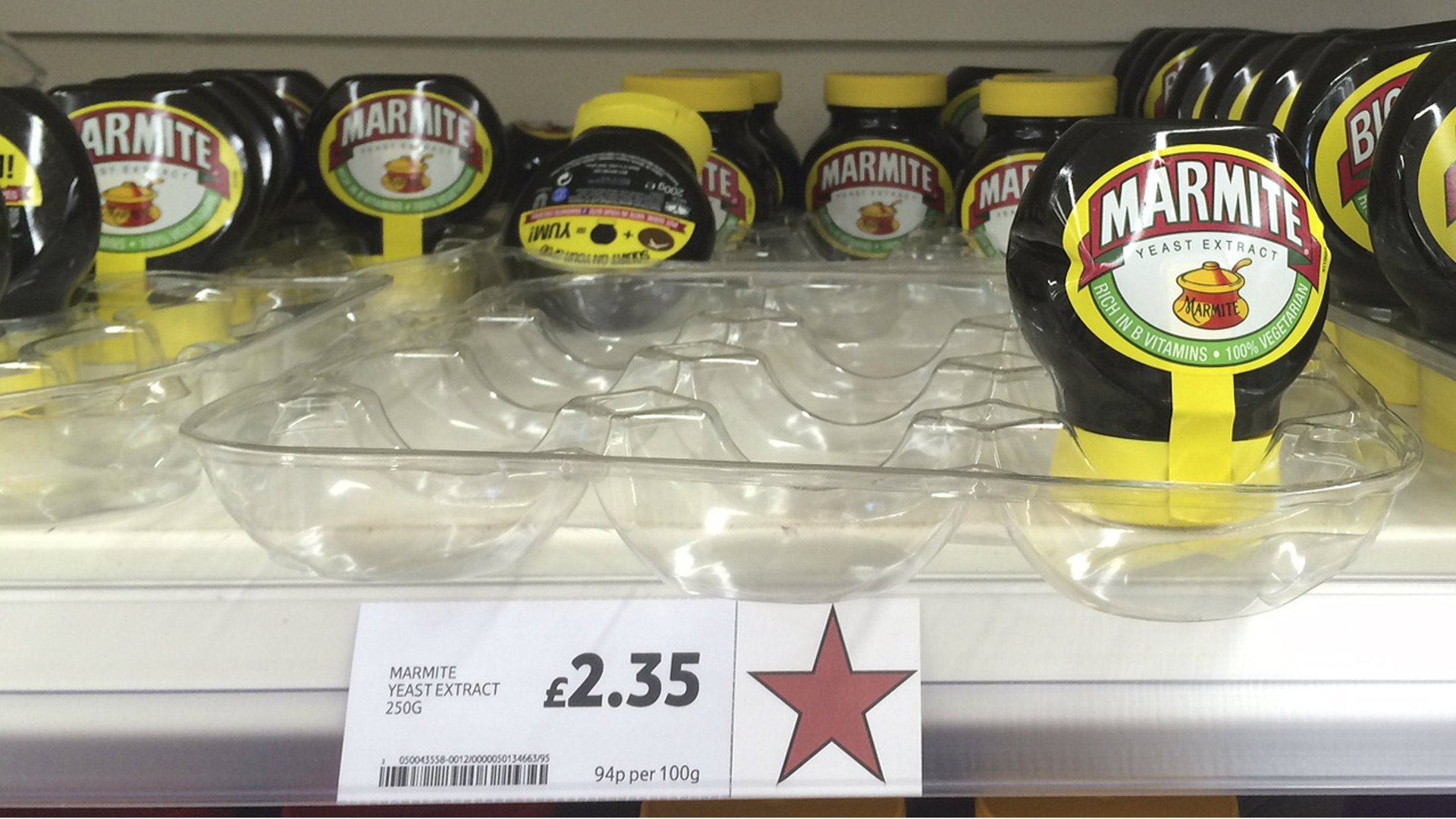Brits go to the polls, with the price of Marmite on their minds
Marmite, the bitter, yeasty spread for toast that some Brits cannot live without, played an unlikely role in the aftermath of the Brexit vote a year ago. That is, the referendum result caught currency traders and quite a few other people off guard, sparking a sharp decline in the UK currency. The weaker pound made imports more expensive.


Marmite, the bitter, yeasty spread for toast that some Brits cannot live without, played an unlikely role in the aftermath of the Brexit vote a year ago. That is, the referendum result caught currency traders and quite a few other people off guard, sparking a sharp decline in the UK currency. The weaker pound made imports more expensive.
Import inflation led to a standoff between the Tesco supermarket chain and Unilever, the Anglo-Dutch consumer goods group that owns the Marmite brand: Unilever said it was raising prices to offset the effect of the weaker pound. Tesco retaliated by briefly pulling Unilever products from its website, sparking fear among Marmite fans. Inflation stoked by the weaker pound has been the most noticeable effect of the Brexit vote to date, with negotiations over trade, immigration, and other issues in post-Brexit Britain yet to take place.
The pound has since stabilized and even rallied somewhat, but today’s election could change that. Prime minister Theresa May’s Conservatives are expected to keep their majority, but should her lead in the polls prove illusory on the day, the pound could fall to as low as $1.20 in the event of a hung parliament (no party winning a majority), according to a Bloomberg poll, from about $1.30 now. Analysts think a large majority for May’s Conservatives, who have campaigned on a platform of “strong and stable” leadership, would be the best short-term outcome, giving a slight boost to the currency.
A win for Jeremy Corbyn’s Labour party, as unlikely as it is, would probably spark a sharp fall in the pound at first, according to forecasters. But before long, some think a Labour-led government could negotiate a so-called “soft” Brexit, in which the UK retains more of the benefits of EU membership even after it formally leaves the bloc. That would boost the chances of Britain keeping preferential access to EU markets—the destination for around 40% of the UK’s exports and source of 50% of its imports—leading to an eventual rally in the pound. And plenty of Marmite for Brits who can’t go without their fix.